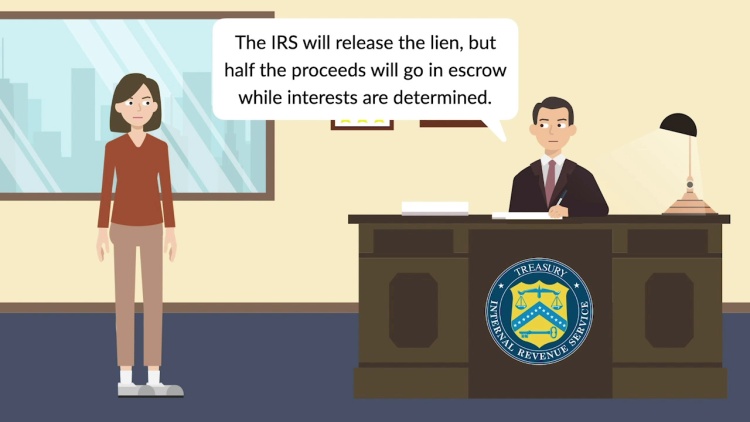United States v. Craft
United States Supreme Court
535 U.S. 274 (2002)
- Written by Rocco Sainato, JD
Facts
Sandra Craft (plaintiff) and her husband owned a residence in Grand Rapids, Michigan, as tenants by the entirety. In 1988, the Internal Revenue Service (IRS) attached a federal tax lien to the property in response to Mr. Craft’s nonpayment of his federal income tax. Mr. and Mrs. Craft executed a quitclaim deed transferring Mr. Craft's interest in the residence to Mrs. Craft for one dollar. A few years later, Mrs. Craft attempted to sell the residence, but she discovered that the tax lien still existed. The IRS agreed to release the lien and allow Mrs. Craft to sell the residence, on the condition that one-half of the net proceeds of the sale were to be held in escrow pending a determination of the government's interest in the property. Mrs. Craft brought suit against the United States government (defendant) to quiet title to the sale proceeds being held in escrow. The district court determined that the lien entitled the government to one-half of the proceeds from Mrs. Craft’s sale of the residence, because Mr. Craft's sale of his interest to Mrs. Craft terminated the tenancy by the entirety and caused the tax lien to attach to the property. Mrs. Craft appealed to the United States Court of Appeals for the Sixth Circuit, which determined that under Michigan law, Mr. Craft had no separate interest in the property as a tenant by the entirety, and he thus was unable to encumber the residence with a tax lien. The United States Supreme Court granted certiorari.
Rule of Law
Issue
Holding and Reasoning (O’Connor, J.)
Dissent (Scalia, J.)
Dissent (Thomas, J.)
What to do next…
Here's why 909,000 law students have relied on our case briefs:
- Written by law professors and practitioners, not other law students. 47,100 briefs, keyed to 997 casebooks. Top-notch customer support.
- The right amount of information, includes the facts, issues, rule of law, holding and reasoning, and any concurrences and dissents.
- Access in your classes, works on your mobile and tablet. Massive library of related video lessons and high quality multiple-choice questions.
- Easy to use, uniform format for every case brief. Written in plain English, not in legalese. Our briefs summarize and simplify; they don’t just repeat the court’s language.





